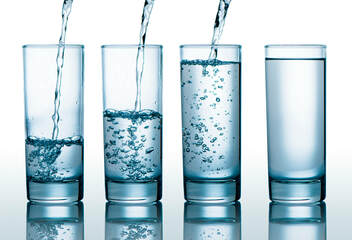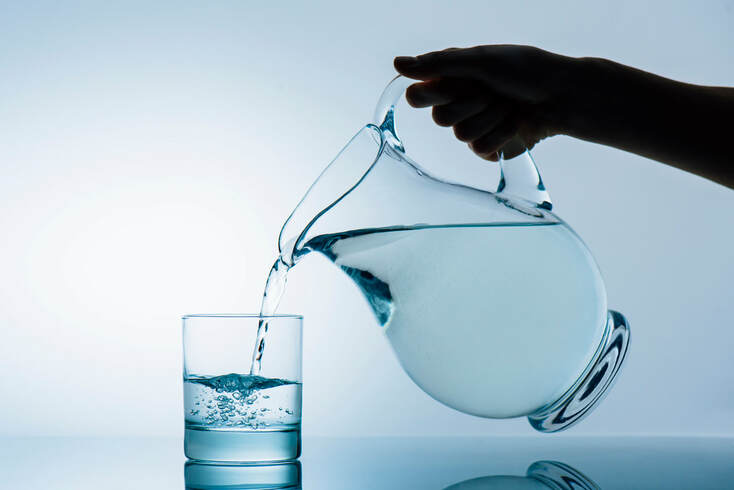|
Did you know that your body is made up of between 60-75% water? No wonder how much water you drink can affect your health. Too little water can cause dehydration, headaches or fatigue, while too much water can result in mineral imbalances. 1. Being Hydrated Improves Mental Focus and Alertness Water gets nutrients to your brain cells, so dehydration can cause your brain to be a bit sluggish. Even mild dehydration (1-3% of body weight) can impair mood, memory, and brain function. This fluid loss equals about 1.5-4.5 pounds (0.5-2kg) for a 150 pound (68 kg) person. Reference  A fluid loss of 1.36% after exercise, in a study of young women, impaired mood and concentration and increased the frequency of headaches. Reference In a similar study of young men, a fluid loss of 1.59% was harmful to working memory and also increased feelings of anxiety and fatigue. Reference Mild dehydration can happen during everyday activities. 2. Water Boosts Your Metabolism. While drinking water doesn't cause your body to burn calories, it does ensure that your metabolism is functioning optimally. After sleeping all night, you're slightly dehydrated upon waking. Drinking several glasses of water first thing, is a great way to begin the day hydrated so that your metabolism is effective. Water also helps you metabolize macronutrients (fats, carbohydrates and proteins) from the foods you eat and turn them into usable “fuel” 3. Being Hydrated Decreases Your Appetite and Stimulates Your Digestion. Often feelings of hunger are actually signs of dehydration. Also, replacing sweetened drinks with water can save thousands of calories over time. Water helps you produce saliva and digestive enzymes to help digest your food. Water also helps to flush away waste and toxins through urination and bowel movements. 4. Being Hydrated Makes Exercise Easier.  Water transports essential nutrients to your muscle cells, so that you can power through workouts and recover more quickly. Being dehydrated can even effect your level of motivation and enjoyment of exercise! Reference Water:
5. Drinking Water Keeps Your Skin Healthier.  Mild to moderate dehydration can cause dry skin, while excessive dehydration can cause skin to lose its elasticity. When dehydrated, skin appears duller, and wrinkle and pores appear more prominent. Water plumps up the skin, which causes wrinkles and pores to get filled in. Plus, structures in the skin that support collagen require water to work effectively. As a bonus, when skin is hydrated, it's less likely to crack and let external particles in that can cause skin irritations and blemishes. How much water should you drink? Bio-individuality applies not only to food, but also to the amount of water our bodies need to function properly. On average, women should drink about 9 cups of water per day. Various lifestyle factors need to be taken into account to satisfy individual needs. For example, the water content in fresh fruits and green leafy vegetables may increase hydration in the body. Water intake should be increased in the following situations:
One way to remember to drink your water is to think of a wilting houseplant. You know how when you give that plant some water, it springs back to life? Your body – which is comprised of 55 to 60% water – appreciates being invigorated with water too! Are you a water drinker? |
Click below to join my FREE Facebook Group-
Women's Wellness Circle: Create Your Extraordinary Life AuthorHi, I’m Crystal! If you'd like to access my Farmer's Market Friday posts from 2018, click here!
Categories
All
|



 RSS Feed
RSS Feed